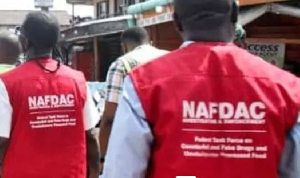Kwame Andrews Daklo isn’t the only member in his family born "too white" so it was exceptionally easy bonding with his relatives.
However, he suffered a fair share of discrimination trying to integrate into the society. For many, he was a rare breed born with curses, and the less they associated with him, the better.
When he boards the bus, he is met with cold stares from people who sometimes whisper words like ‘yevu’ or ‘ofri’, meaning foreigner or white. “Nobody wants to sit with me, even when the car is full,” he said.
But for his determination, he would have dropped out of school because he couldn’t see the blackboard.
The humiliation of walking to the front of the class to see what his teacher was writing was worsened by constant ridicule from his classmates.
Kwame has pale skin and noticeable patches of dark spots from years of exposure to the sun. He is among the Ghanaians who have albinism, a recessive condition that drastically reduces the amount of melanin in the skin and can lead to problems like vision loss and skin cancer.
To say that Ghanaians with albinism are stigmatized is an understatement: Some believe their presence is a sign of bad luck, leading their parents to avoid acknowledging them or even to try to kill them. Others believe their body parts can bring fortune and prosperity, prompting people to kill them or traffickers to sell them for their body parts.

Now a social worker, Kwame tells GhanaWeb that until he started work with Engage Now Africa, gaining employment was a tough hustle for him.
Engage Now Africa, is a nongovernmental organization that provides medical services, clean water, and business training to communities in Ghana and other African countries.
“In the corporate world, a lot of people think that persons with albinism are less efficient than other persons. We are sometimes perceived as a curse that can drive clients away”.
“I remember I showed up for a job interview and when asked about my flaws, told the panel that I have low vision due to my condition. They made a mockery of the situation by going to write on the board and asking me to read from where I sat. I told them I could not see and my interview ended right there.”
Forming romantic relationships when one becomes of age is a part of the typical Ghanaian socialization. On that front, he recounts a bitter experience.
He told GhanaWeb that his first girlfriend was teased out of their relationship. “My first girlfriend did not have my condition. A lot of people mocked her for dating an “ofri” and she eventually left the relationship.”
He said his next relationship wasn’t any better as he only received heartbreaking comments from his girlfriend’s family.
“My girlfriend’s mother told me that I smelled like fresh tilapia so she did not want me close to their family. Her mum also said she could not even eat when I am around because my presence made her nauseous”.
These are and other horrible receptions are what Kwame goes through trying to find love.
People in Ghana with albinism have been largely isolated from one another and unable to get the resources to help them battle the unforgiving sun and a world that thinks them disposable. But in recent years, they have forged connections on platforms like Facebook and WhatsApp, turning a societal stigma into social bonds and offline friendships.
Below is the full interview with Kwame Andrews Daklo;
June 13 marks International Albinism Awareness Day around the globe. This day is observed to educate everyone about the rights of people with albinism and celebrate them.
The theme for 2020 International Albinism Awareness Day is "Made To Shine." This day is an appeal to stand in solidarity with people living with this condition.
Join the online celebration in solidarity with persons with albinism worldwide, use the hashtags #MadeToShine #standup4humanrights
General News of Saturday, 13 June 2020
Source: www.ghanaweb.com













